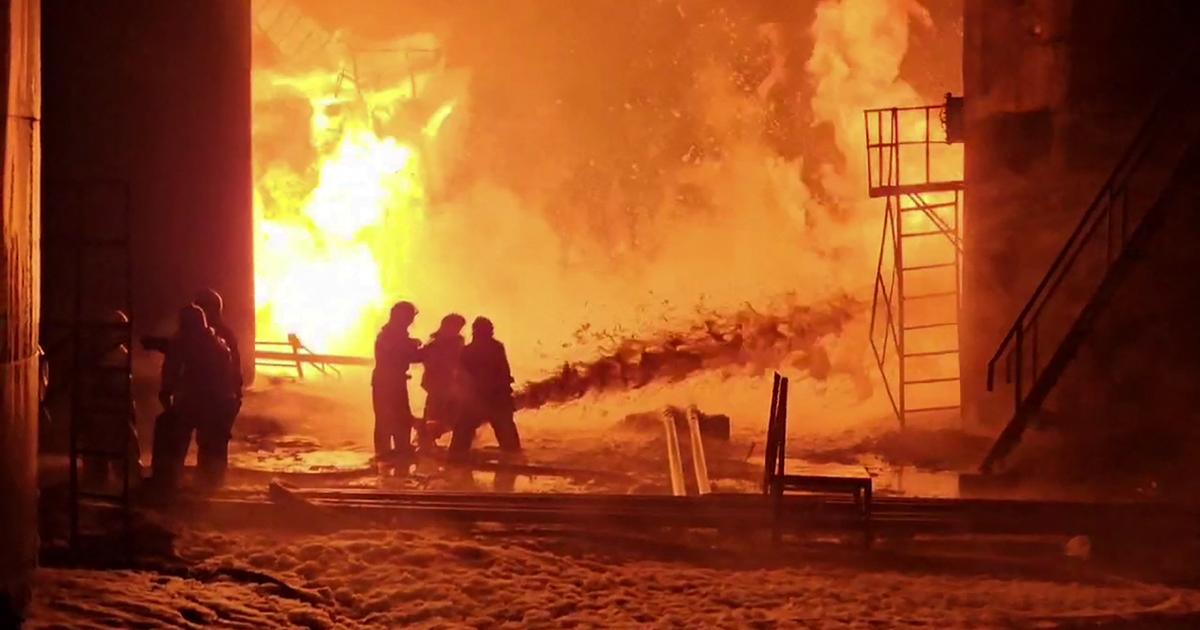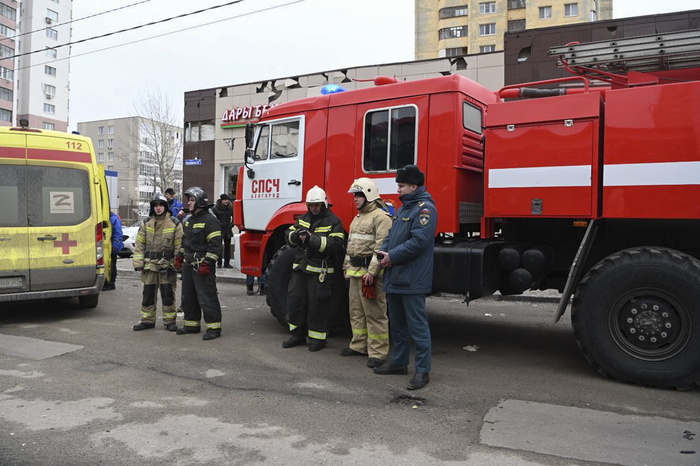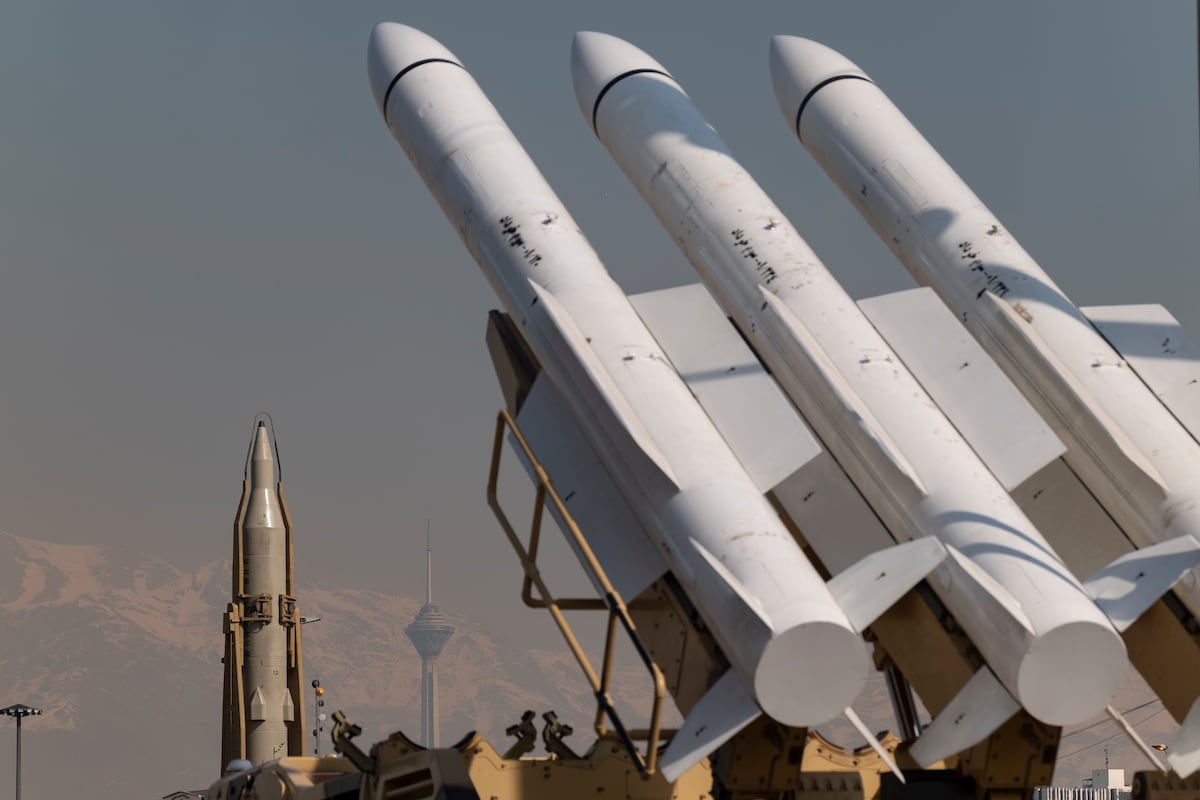The piece of evidence is a thick steel plate, five by five meters in size, around which Saudi Arabian oil engineer Khalid Al-Ghamdi is now running excitedly. He points in the middle to a massive hole with steel points bent outward, like the fangs in the mouth of a predator.
The opening is so big that a human could go through it.
The hole was torn at dawn by a rocket into the shell of a so-called spheroid, exactly on September 14 at 3.51 clock. Spheroids are huge storage tanks in spherical form, two dozen meters high, in which, for example, crude oil is degassed or dehydrated. The bulbous vessel being repaired here is one of eleven tanks that were attacked by cruise missiles on Saturday morning in Abkaik. Ten goals were on fire, says Al Ghamdi.
Al-Ghamdi is the operations manager of the world's largest oil refinery. He is responsible for making everything work. And it worked.
4.7 million barrels of oil were processed daily by Abkaik. With the attack hit another factory - Khurais, also in the east of the country - the assassins shut down fifty percent of oil production in the kingdom. They also aimed at the heart of the international energy supply. The price of oil rose by nearly twenty percent.
Al-Ghamdi is not tall, wiry, in her late forties, full, gray hair. For twenty years he has worked for Saudi Aramco, the largest oil company in the world. Al-Ghamdi wears a beige shirt, brown pants, corporate uniform, his house is less than 100 meters from the refinery. "I keep an eye on them day and night," he says almost lovingly.
Brutality and malice
Al-Ghamdi has never let foreigners into his system, certainly not with cameras, for security reasons. He acts like a bank director showing the vault to the investigators after being cleared by criminals. Al-Ghamdi wants to show the international reporters, with what brutality and malice the enemies in Abkaik proceeded.
But he wants to make something else clear: that, however great the destruction is, the state-owned company Aramco can not afford to lose it. "I've got 200 safety drills behind me, the manager says," everything went according to plan. "
Al-Ghamdi was already awake before the missiles hit. He spoke his first prayer, Fajr, when he heard a infernal noise. That was deafening. Three minutes later he was already at the scene.
Black smoke rose over Abkaik. The oil in the spheroids had ignited. Thick fires billowed in the sky over the city. Twenty minutes later, Al-Ghamdi and his men had already evacuated the 110 shift workers at the plant. Seven hours later, all the fires were extinguished.
More at SPIEGEL +
Only one day after the disaster Al-Ghamdi resumed production, throttled. Now he produces two million barrels of oil a day. By the end of September, the company wants to be fully operational again.
The damage is still immense. Aramco wants to go public soon. Crown Prince Mohammed bin Salman, 34, who de facto ruled the country, set the value of the state-owned enterprise at $ 2 trillion, higher than any other company before.
But some analysts will now ask what it means when the security systems against air attacks at the corporation can completely fail, and terrorists can easily paralyze the country's economy in minutes with just a single attack.
A bad masterpiece
Perhaps the most painful is the professionalism with which this attack was carried out. Saudi Arabia is convinced that the archenemy Iran is behind it. Tehran vehemently denies this. The Shiite Houthi rebels from Yemen have so far reclaimed the evil masterpiece for themselves.
For the assertion of the Saudis, however, says that the drones and cruise missiles used must be for a long-distance mission on the latest technology. Yemen is 1000 kilometers from the destination. It is only 300 kilometers to Iran.
For the explanation, the target evaluation, target selection and programming of the drones experienced professionals are necessary. Usually such complex attacks are organized by the general staff of a modern army.
The strongest argument of the Saudis is so far the direction from which the rockets hit, from the northwest. However, Yemen is located south of the kingdom.
However, the shooting positions could not be cleared up yet. Because the control of drones is flexible, they can change their direction of flight.
Drone factory in Yemen?
For the possibility that the Houthis are actually not just stooges of the Iranians, but even have the necessary technology and know-how, in turn says that the rebels were able to bring weapons across the Mediterranean before the war, say observers in Sanaa who do not belong to the Houthi camp. An arms expert in the Yemeni capital, who does not want his name published, told Der Spiegel that he himself had seen two Iranian ships landing in Salif Harbor near Hodaidah a year before the war, in 2014. Large quantities of weapons were then made in the direction of Sanaa. Yemen itself has two production facilities for drones and missiles.
"A good country and a bad land"
In Saudi Arabia, anger over aggression is high. The oil plants are something like the crown jewels of the kingdom. US Secretary of State Mike Pompeo spoke of a "war act" last week on his flash visit to the Crown Prince in Jeddah.
more on the subject
But what follows? In Riyadh one tries to make a living. You see yourself as a victim of a brutal series of attacks. "There is one country that wants good and another country that wants evil," Foreign Minister of State Adel Al-Jubeir told media representatives in Riyadh on Saturday.
The wounded kingdom
The government wants international condemnation of the perpetrators. What the punishment might look like, US Senator Lindsey Graham had already formulated shortly after the attack: Graham pleaded for bombing the Iranian oil facilities.
But Riad's most important ally so far, US President Donald Trump, is not pulling. Stricter sanctions on Tehran, yes, more US troops in the kingdom, but "we do not want a war with Iran," Trump said last week in Washington. He leaves the desert monarchs alone in their deep pain.
Saudi Arabia can not and will not leave the wound inflicted on it unanswered. On Thursday, the coalition forces bombed the Yemeni port of Hodaidah. This should break the cease-fire negotiated truce.
In the Abkaik oil factory, Al-Ghamdi's men work around the clock to remedy the damage as quickly as possible. "We'll get up and be stronger than before," says the engineer. It sounds like a challenge.














